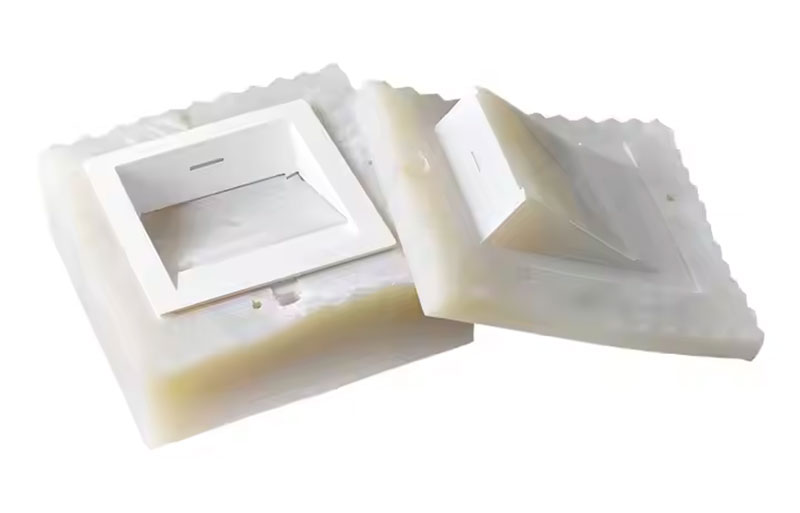In the rapidly developing modern industry, silicone molds are gradually becoming a shining star in the field of composite materials due to their unique properties and wide application areas. Especially in today’s pursuit of green manufacturing and sustainable development, silicone molds provide innovative solutions for the composite materials industry with their environmentally friendly, efficient, and durable characteristics.

1、 Green characteristics of silicone molds
Silicone molds stand out in composite material manufacturing due to their environmentally friendly and non-toxic characteristics. Silicone material is non-toxic and odorless, meets environmental requirements, and does not pose a threat to the environment and human health. This characteristic makes silicone molds widely used in industries such as food and medical that require high material safety. At the same time, the high temperature resistance and stability of silicone molds also provide strong guarantees for their high-temperature processing in composite materials.
2、 Innovative applications in the field of composite materials
The application of silicone molds in the field of composite materials is becoming increasingly widespread, not only limited to traditional manufacturing industries, but also penetrating into multiple high-tech fields such as aerospace, automotive manufacturing, and wind power generation. For example, in the aerospace field, carbon fiber silicone composite materials have become an ideal choice for aircraft structural components, engine components, and spacecraft structures due to their lightweight and high-strength characteristics. The application of this material not only reduces the weight of aerospace vehicles and improves operational efficiency, but also promotes the development of green aviation.
In the field of automobile manufacturing, with the increasing demand for lightweight vehicles, carbon fiber silicone composite materials are widely used in the manufacturing of key components such as body structural parts, chassis parts, and power systems. The application of this material not only improves the overall performance and fuel efficiency of automobiles, but also promotes the green transformation of the automotive manufacturing industry. In addition, some recyclable carbon fiber composite materials also provide strong support for the sustainable development of the automotive manufacturing industry.
3、 Technological innovation and industrial upgrading
With the continuous advancement of technology and the continuous improvement of processes, silicone mold technology is also constantly innovating and upgrading. In terms of material selection, researchers have improved the mechanical and heat resistance of silicone molds by improving raw material formulations and optimizing mixing processes. At the same time, more innovation and improvement have been achieved in mold design and production processes. These technological innovations not only improve the manufacturing efficiency and accuracy of silicone molds, but also reduce production costs and energy consumption, further promoting green manufacturing in the field of composite materials.
4、 Market demand and future development
With the continuous improvement of global environmental awareness and the increasingly strict environmental regulations, the demand for green manufacturing in the composite materials industry is becoming more and more urgent. As one of the important tools for green manufacturing, the market demand for silicone molds will continue to grow. In the future, silicone mold technology will be applied and promoted in more fields, providing more efficient and low-cost solutions for the green development of the composite materials industry.
In summary, silicone molds are playing an increasingly important role in the composite materials industry due to their unique green characteristics and wide range of applications. With the continuous innovation of technology and the expansion of the market, silicone molds will become an important driving force for green manufacturing in the field of composite materials, contributing to the green transformation and sustainable development of global industries.


